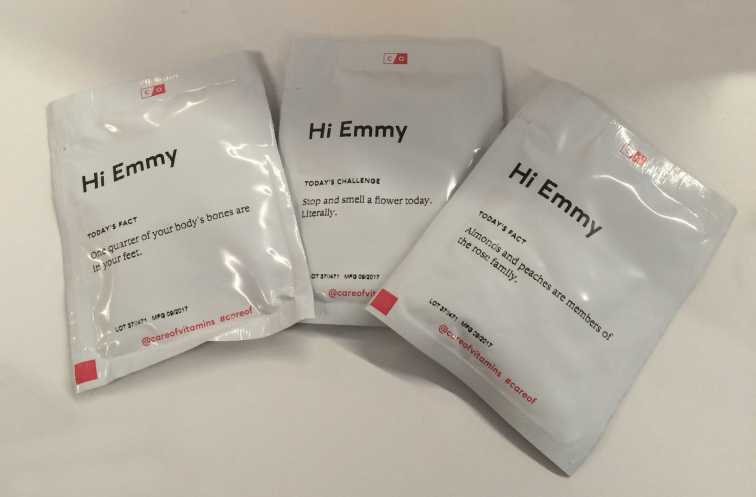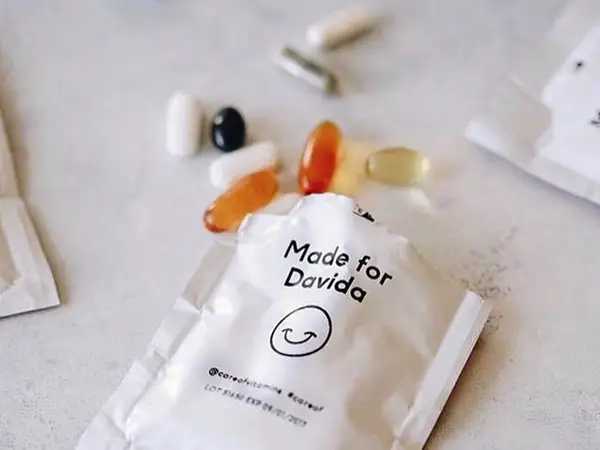
Personalised supplement plans taunt and tempt you with claims of providing potential users with the magical opportunity of becoming better looking, younger looking and healthier in every respect. All it requires is to answer a series of questions and critically, to sign up and pay for an ongoing subscription and voila an algorithm will churn out your prescription and your first courier pack will later hit your door-step.
Supplement products take many forms and one such product Rejigit has read about apparently resembles gummies (chewable fruit lollies) and some of the ingredients and claimed benefits includes Vitamin B12, tart cherry, beetroot, Lutemax 2020, ginger extract, white kidney bean extract and a probiotic called BPL1 which suppresses appetite, reduces cravings, protects eyes from blue light and boosts sleep quality.

A number of international nutrition experts have indicated serious scepticism. Margaret Rayman, professor of nutritional medicine at the University of Surrey is reported as suggesting “It all looks bullshit.”
Rayman argues that if personalised vitamin providers are really doing their job, their algorithms should be able to recommend appropriate supplements when presented with a profile of someone who is likely to be deficient in certain nutrients.
In order to put this to the test, a specific user profile was created – Sania, a 29-year-old Indian woman living in the UK who follows a vegan diet and is trying to become pregnant. We then attempted to enter Sania’s user details into a number of personalised nutrition providers online; Nourished, Persona, Made4 Vitamins and Vitl.
Theoretically they should have recommended vitamin D because her skin is dark and so will have a higher requirement, “They might also have suggested B12, which is missing in all vegan foods, iodine, which is crucial for brain development in the womb and the main source of which is milk, dairy products and fish, as well as calcium because vegans tend to be low and have higher risks of bone fracture. Finally, long-chain n-3 fatty acids or fish oils, which are vital for a developing baby’s brain and eyes and cannot be sourced from a vegan diet.
Clare Collins, professor of nutrition and dietetics at the University of Newcastle in New South Wales, Australia, described some supplement / ingredients as “bogus”, arguing that the so-called research cited in support of them tends to be of low academic quality. Collins also said that when she had reviewed the literature, in her opinion there was no good evidence lutein could protect your eye health. “There haven’t been rigorous, randomised controlled trials with tolerability for dose and looking at the side-effects,”
Emily Burch, a practising dietitian and researcher at the University of Queensland in Australia, is particularly cynical about companies which charge for each and every individual supplement they recommend. She believes that: “Many of these companies cherry-pick and exaggerate results from single research studies which have low value scientific worth.
Burch’s scepticism highlights some of the general issues with vitamins which have long been one of the wellbeing industry’s most reliable income earners. In recent years, major pharmaceutical companies including Pfizer, GSK, Novartis and Unilever manufacture vitamin supplements.
In 2020 the global Personalised Supplement industry was valued at circa US$1.8 billion and some of the largest food and vitamin companies are keen to be involved. Nestlé have acquired the personalised vitamin subscription service Persona for an undisclosed sum. The wider vitamin / supplement industry is estimated to be worth approximately US$130 billion globally.
When BBC journalists tested a range of personalised vitamin companies including Vitl and Vitamin Buddy, they found that they were recommended exactly the same supplements, despite entering differing details in their various personalisation questionnaires.
There is no reliable evidence that vitamins will make anyone live longer, slow cognitive decline or lower the risk of chronic illnesses such as heart disease, stroke, cancer or diabetes. A 2020 British Medical Journal analysis indicates that “randomised trial evidence does not support the use of vitamins, minerals and fish oil supplements to reduce the risk of non-communicable diseases (cancer, cardiovascular disease or type 2 diabetes).”

Some international clinical evidence has found that in some cases, taking vitamins can result in harmful health outcomes, especially for tobacco smokers or those already taking medications which could interact with a particular supplement. Vitamin A and beta carotene have been found to increase the risk of lung cancer in smokers, while vitamin K can reduce the potency of blood thinners such as warfarin, and St John’s wort may make drugs such as antidepressants less effective.
Nutrition experts tend to recommend that the average, healthy person should preferably obtain their essential vitamin intake via the consumption of a balanced diet including a wide variety of vegetables and fruits.
Excessive consumption of supplements can also give rise to hypervitaminosis, which relates to abnormally high levels of vitamins retained in fat tissue.
One of the major limitations with all supplement providers is that the personalisation aspect relies entirely on a user-provided questionnaire . It is thought that in future, emerging technologies such as genotyping or microbiome sequencing may be able to provide a more precise and scientific method of identifying vitamin deficiency. In the mean time, personalised supplement products are probably a waste of money.
…